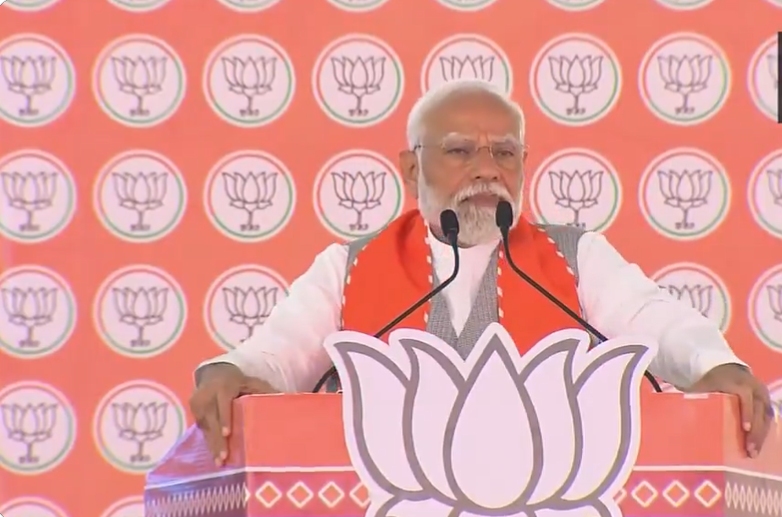Prime Minister Narendra Modi’s recent address at a public rally in Surendranagar, Gujarat, has reignited the flames of controversy with his accusations against the Congress party, alleging attempts to sow discord among different Hindu faiths. Modi pointed to statements made by senior Congress leaders, including Mallikarjun Kharge, which he described as “dangerous” and “malicious” attempts to divide devotees of Lord Ram and Lord Shiva.
In a fervent speech, Modi condemned what he portrayed as the Congress’s deliberate efforts to discriminate between various Hindu faiths, emphasizing the enduring traditions that have withstood the test of time. He underscored the need to preserve these traditions, citing historical resilience against external influences, including the Mughal era.
Modi’s remarks also touched upon recent comments made by a Congress leader, whom he referred to as ‘Shehzada,’ regarding the destruction of Shakti. Modi questioned whether devotees of Shakti could forgive such statements, positioning the BJP as protectors of Hindu faith and traditions.
The Prime Minister’s comments come amidst a flurry of controversial statements made by Congress leaders, sparking debates on religious tolerance and the role of political parties in fostering harmony among diverse faiths. As the political temperature rises, Modi’s accusations have added fuel to an already heated discourse on religious identity and communal harmony.
The Congress party is yet to offer an official response to Modi’s allegations, leaving room for speculation about its stance on the matter. As the nation watches on, the hope for a resolution that upholds India’s rich cultural heritage and promotes unity amidst diversity remains paramount.
In the midst of escalating tensions, the role of political leaders in fostering religious tolerance and communal harmony is under scrutiny. With the upcoming elections looming large, the discourse surrounding these issues is likely to shape the political landscape in the days to come, as citizens grapple with questions of identity, inclusivity, and national unity.



